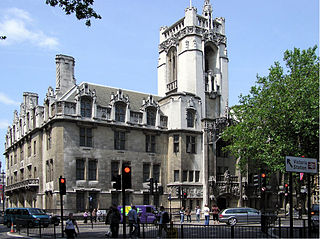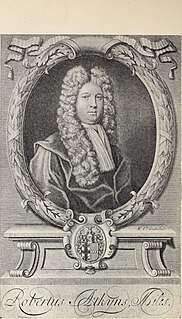Facts
In 1668, a London-based merchant, Thomas Skinner, presented a petition to Charles II asserting that he could not obtain any redress against the East India Company, which, he asserted, had injured his property, his free trading base in the Indian Ocean set up before the latter had an official monopoly.
The case was referred to the House of Lords, and Skinner obtained a verdict for £5,000 damages (equivalent to £1,000,000in 2019). The company complained to the House of Commons which declared that the proceedings in the other House were illegal. The Lords defended their action, and after two conferences between the Houses had produced no result the Commons ordered Skinner to be put in prison on a charge of breach of privilege; to this the Lords replied by fining and imprisoning Sir Samuel Barnardiston, the chairman of the company.
Then for about a year the dispute slumbered, but it was renewed in 1669, when Charles II advised the two Houses to stop all proceedings and to erase all mention of the case from their records. This was done and since this time the House of Lords has tacitly abandoned all claim to original jurisdiction (be a court of first instance) in civil suits.

A jury trial, or trial by jury, is a lawful proceeding in which a jury makes a decision or findings of fact. It is distinguished from a bench trial in which a judge or panel of judges makes all decisions.
Personal jurisdiction is a court's jurisdiction over the parties to a lawsuit, as opposed to subject-matter jurisdiction, which is jurisdiction over the law and facts involved in the suit. If a court does not have personal jurisdiction over a party, its rulings or decrees cannot be enforced upon that party, except by comity; i.e., to the extent that the sovereign which has jurisdiction over the party allows the court to enforce them upon that party. A court that has personal jurisdiction has both the authority to rule on the law and facts of a suit and the power to enforce its decision upon a party to the suit. In some cases, territorial jurisdiction may also constrain a court's reach, such as preventing hearing of a case concerning events occurring on foreign territory between two citizens of the home jurisdiction.
Sovereign immunity, or crown immunity, is a legal doctrine whereby a sovereign or state cannot commit a legal wrong and is immune to civil suit or criminal prosecution, strictly speaking in modern texts in its own courts. A similar, stronger rule as regards foreign courts is named state immunity.

The United Kingdom has four legal systems, each of which derives from a particular geographical area for a variety of historical reasons: English law, Scots law, Northern Ireland law, and, since 2007, purely Welsh law. However, unlike the other three, Welsh law is not a separate legal system per se, merely the primary and secondary legislation generated by the Welsh Parliament, interpreted in accordance with the doctrines of English law and not impacting upon English common law. There is a substantial overlap between these three legal systems and the three legal jurisdictions of the United Kingdom: England and Wales, Scotland, and Northern Ireland. Each legal system defaults to its jurisdiction, each of whose courts further that law through jurisprudence. Choice of which jurisdiction’s law to use is possible in private law: for example a company in Edinburgh, Scotland and a company in Belfast, Northern Ireland are free to contract in English law. This is not so in public law, where there are set rules of procedure in each jurisdiction. Overarching these systems is the law of the United Kingdom, also known as United Kingdom law. UK law arises from laws applying to the United Kingdom and/or its citizens as a whole, most obviously constitutional law, but also other areas, for instance tax law.

While the House of Lords of the United Kingdom is the upper chamber of Parliament and has government ministers, it for many centuries had a judicial function. It functioned as a court of first instance for the trials of peers, for impeachments, and as a court of last resort in the United Kingdom and prior, the Kingdom of England.
A lawsuit is a proceeding by a party or parties against another in the civil court of law. The archaic term "suit in law" is found in only a small number of laws still in effect today. The term "lawsuit" is used in reference to a civil action brought in a court of law in which a plaintiff, a party who claims to have incurred loss as a result of a defendant's actions, demands a legal or equitable remedy. The defendant is required to respond to the plaintiff's complaint. If the plaintiff is successful, judgment is in the plaintiff's favor, and a variety of court orders may be issued to enforce a right, award damages, or impose a temporary or permanent injunction to prevent an act or compel an act. A declaratory judgment may be issued to prevent future legal disputes.

The Court of Session is the supreme civil court of Scotland and constitutes part of the College of Justice; the supreme criminal court of Scotland is the High Court of Justiciary. The Court of Session sits in Parliament House in Edinburgh and is both a trial court and a court of appeal. Decisions of the court can be appealed to the Supreme Court of the United Kingdom, with the permission of either the Inner House or the Supreme Court. The Court of Session and the local sheriff courts of Scotland have concurrent jurisdiction for all cases with a monetary value in excess of £100,000; the pursuer is given first choice of court. However, the majority of complex, important, or high value cases are brought in the Court of Session. Cases can be remitted to the Court of Session from the sheriff courts, including the Sheriff Personal Injury Court, at the request of the presiding sheriff. Legal aid, administered by the Scottish Legal Aid Board, is available to persons with little disposable income for cases in the Court of Session.
In the 1760s William Blackstone described the Fundamental Laws of England in Commentaries on the Laws of England, Book the First – Chapter the First : Of the Absolute Rights of Individuals as "the absolute rights of every Englishman" and traced their basis and evolution as follows:

Subject-matter jurisdiction is the authority of a court to hear cases of a particular type or cases relating to a specific subject matter. For instance, bankruptcy court only has the authority to hear bankruptcy cases.

An abstention doctrine is any of several doctrines that a United States court may apply to refuse to hear a case if hearing the case would potentially intrude upon the powers of another court. Such doctrines are usually invoked where lawsuits involving the same issues are brought in two different court systems at the same time.

The courts of Scotland are responsible for administration of justice in Scotland, under statutory, common law and equitable provisions within Scots law. The courts are presided over by the judiciary of Scotland, who are the various judicial office holders responsible for issuing judgments, ensuring fair trials, and deciding on sentencing. The Court of Session is the supreme civil court of Scotland, subject to appeals to the Supreme Court of the United Kingdom, and the High Court of Justiciary is the supreme criminal court, which is only subject to the authority of the Supreme Court of the United Kingdom on devolution issues and human rights compatibility issues.

The Inner House is the senior part of the Court of Session, the supreme civil court in Scotland; the Outer House forms the junior part of the Court of Session. It is a court of appeal and a court of first instance. The chief justice is the Lord President, with their deputy being the Lord Justice Clerk, and judges of the Inner House are styled Senators of the College of Justice or Lords of Council and Session. Criminal appeals in Scotland are handled by the High Court of Justiciary sitting as the Court of Appeal.

The High Court of the Republic of Singapore is the lower division of the Supreme Court of Singapore, the upper being the Court of Appeal. It consists of the Chief Justice of Singapore and the Judges of the High Court. Judicial Commissioners are often appointed to assist with the Court's caseload. There are two specialist commercial courts, the Admiralty Court and the Intellectual Property Court, and a number of judges are designated to hear arbitration-related matters. In 2015, the Singapore International Commercial Court was established as part of the Supreme Court of Singapore, and is a division of the High Court. The seat of the High Court is the Supreme Court Building.
The judicial system of Greece is the country's constitutionally established system of courts.

The supreme court is the highest court within the hierarchy of courts in many legal jurisdictions. Other descriptions for such courts include court of last resort, apex court, and highcourt of appeal. Broadly speaking, the decisions of a supreme court are not subject to further review by any other court. Supreme courts typically function primarily as appellate courts, hearing appeals from decisions of lower trial courts, or from intermediate-level appellate courts.

Council of Civil Service Unions v Minister for the Civil Service [1984] UKHL 9, or the GCHQ case, is a United Kingdom constitutional law and UK labour law case that held the Royal Prerogative was subject to judicial review.

Sir Robert Atkyns KCB KS (1620–1710) was an English Lord Chief Baron of the Exchequer, Member of parliament, and Speaker of the House of Lords.
Ashwander v. Tennessee Valley Authority, 297 U.S. 288 (1936), was a United States Supreme Court case that provided the first elaboration of the doctrine of "Constitutional avoidance".
In 1964 Tanganyika and Zanzibar formed the United Republic of Tanzania. After the Treaty of the Union, the two countries continued to remain with their own legal systems including court structures. In the 1977 Constitution of the United Republic of Tanzania, the High Court of Tanganyika whose jurisdiction was and still is territoriality limited to Tanzania Mainland was called the High Court of Tanzania and the High Court of Zanzibar retained its original name. It is essential to note that the High Court of Tanzania only has territorial jurisdiction over legal issues arising in Tanzania Mainland and the High Court of Zanzibar has territorial jurisdiction over legal issues arising in Zanzibar.

The original jurisdiction of the Supreme Court of the United States is limited to a small class of cases described in Article III, section 2, of the United States Constitution, and further delineated by statute.









